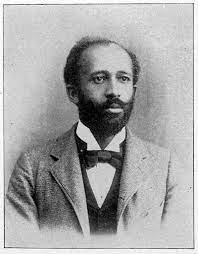Key Takeaways:
- W.E.B. Du Bois was a politically engaged intellectual who actively participated in advocacy and social reform
- His political involvement extended to issues such as civil rights, racial equality, and Pan-Africanism
- Du Bois’ influence as a political thinker and activist contributed to significant advancements in the civil rights movement
- His leadership in organizations like the NAACP demonstrated the power of political engagement in advancing social change
- Du Bois’ legacy highlights the enduring impact of political activism in the pursuit of social justice
The Impact of W.E.B. Du Bois’ Political Engagement and Social Reform
W.E.B. Du Bois, an intellectually involved figure, was deeply engaged in political affairs, actively contributing to advocacy and societal change. He played a pivotal role in social reform, using his intellect and influence to drive meaningful progress. Du Bois was a passionate advocate, dedicating himself to the pursuit of justice and equality. As an intellectual powerhouse, he actively participated in political discourse, leveraging his knowledge and insights to effect change.
His commitment to social reform was unwavering, as he tirelessly worked to address societal inequities and champion the rights of marginalized communities. Du Bois’ involvement in political advocacy was marked by a fervent dedication to advancing societal transformation and fostering a more just and equitable world. His intellectual contributions and fervent engagement in political arenas left an indelible mark on the landscape of social reform and  advocacy.
advocacy.
The Political Engagement of W.E.B. Du Bois
W.E.B. Du Bois was deeply engaged in political affairs, delving into matters concerning civil liberties, racial justice, and the unity of the Pan-African movement. His active participation in political matters spanned a wide range of concerns, including issues related to equal rights, racial equity, and the solidarity of the Pan-African community. Du Bois’ commitment to political engagement was comprehensive, encompassing various facets of civil rights, racial parity, and the advancement of Pan-African ideals.
His dedication to political activism was far-reaching, addressing issues of civil freedoms, racial fairness, and the cohesion of the Pan-African cause. Du Bois’ fervent involvement in political affairs was extensive, encompassing topics of civil justice, racial parity, and the unification of the Pan-African movement. His deep involvement in political matters was broad, covering aspects of civil liberties, racial equality, and the solidarity of the Pan-African community. Du Bois’ passionate commitment to political participation was inclusive, addressing a multitude of concerns, including civil rights, racial justice, and the unity of the Pan-African movement.
Video: Lecture 6. Uplift, Accommodation, and Assimilation (continued)
Video: The Protests Go Global, with Mary L. Dudziak & Brenda Gayle Plummer
Video: The Life and Times of Shirley Graham Dubois
The Impact of W.E.B. Du Bois as a Political Intellectual and Advocate
W.E.B. Du Bois’ impact as a political intellectual and advocate played a pivotal role in driving substantial progress within the civil rights crusade. His influence as a social theorist and reformer propelled meaningful strides in the struggle for equality and justice. Du Bois’ contributions as a public figure and champion for change were instrumental in shaping the trajectory of the civil rights movement. His role as a visionary leader and catalyst for societal transformation was paramount in effecting substantial advancements in the fight for racial equality.
Du Bois’ legacy as a pioneering thinker and social reformist left an indelible mark on the progression of civil rights and social justice. His advocacy as a political philosopher and activist served as a driving force behind momentous achievements in the struggle for civil rights. Du Bois’ impact as a social commentator and change agent played a crucial part in fostering significant developments within the civil rights movement. W.E.B. Du Bois.
The Influence of W.E.B. Du Bois in Promoting Societal Transformation through Political Participation
W.E.B. Du Bois’ guidance and influence within groups such as the NAACP showcased the effectiveness of active participation in political affairs to promote societal transformation. His role in various associations, including the NAACP, underscored the potency of civic involvement in propelling progress within communities. Du Bois’ direction in entities like the NAACP highlighted the impact of political activism in driving forward shifts in societal dynamics. His involvement in organizations like the NAACP exemplified the strength of political commitment in propelling advancements in social justice.
Du Bois’ leadership within institutions such as the NAACP illustrated the significance of political investment in fostering positive shifts in societal structures. His engagement in groups like the NAACP underscored the influence of political mobilization in promoting positive changes within society. Du Bois’ participation in organizations like the NAACP exemplified the influential role of political involvement in driving societal evolution.
The Enduring Legacy of W.E.B. Du Bois in Social Advocacy
W.E.B. Du Bois’ lasting influence underscores the enduring significance of civic engagement in the quest for societal equity. His legacy serves as a testament to the enduring resonance of advocating for political change in the pursuit of fairness. Du Bois’ impact underscores the lasting importance of social advocacy in the fight for equality.
His enduring legacy illuminates the lasting relevance of active participation in shaping a more just society. Du Bois’ imprint emphasizes the enduring effect of involvement in political action towards achieving a more equitable world. His enduring influence underscores the lasting impact of political mobilization in the pursuit of social parity. W.E.B. Du Bois’ enduring legacy highlights the lasting power of political activism in the pursuit of social justice. W.E.B. Du Bois.
Double Consciousness: W.E.B. Du Bois Profound Concept

Frequently Asked Questions
Q: How did W.E.B. Du Bois engage in politics and social change during his lifetime?
Q: What were some of the key issues or causes that W.E.B. Du Bois focused on in his political engagement?
A: W.E.B. Du Bois focused on issues such as racial inequality, civil rights, and economic justice in his political engagement.
Q: How did W.E.B. Du Bois’ political activities impact the broader social and political landscape of his time?
A: W.E.B. Du Bois’ political activities had a significant impact on the broader social and political landscape of his time, contributing to the advancement of civil rights and the fight against racial segregation and discrimination.
Q: What strategies or methods did W.E.B. Du Bois employ to advocate for social change through his political engagement?
A: W.E.B. Du Bois employed strategies such as founding the NAACP, advocating for civil rights, and using his writing to address social and political issues in his efforts to advocate for social change through political engagement.
Q: What is the legacy of W.E.B. Du Bois’ political activism and how does it continue to influence social change today?
A: The legacy of W.E.B. Du Bois’ political activism continues to influence social change today through his advocacy for racial equality, civil rights, and education, inspiring ongoing efforts to address systemic injustices and promote equality.
”
Early Political Engagement
Web Du Bois, a prominent figure in the civil rights movement, was heavily engaged in political activism throughout his life. Born in 1868, Du Bois grew up in a society marked by racial segregation and discrimination. He quickly recognized the need for social and political change. As he pursued his education, Du Bois became involved in various intellectual and political circles that were focused on addressing racial inequality. His experiences as a student at Fisk University and later at Harvard University further fueled his passion for social justice and political change. This early engagement laid the groundwork for his lifelong commitment to challenging racial injustice through political means.
Advocacy for Pan-Africanism
One of Du Bois’ most significant contributions to political engagement was his advocacy for Pan-Africanism. He believed in the unification of people of African descent worldwide to combat colonialism and racial oppression. Du Bois played a key role in organizing the Pan-African Congresses, which aimed to foster solidarity among people of African descent and to address the issues of colonialism and racism. His advocacy for Pan-Africanism demonstrated his belief in the power of international political movements to bring about social change on a global scale. Du Bois’ efforts in this arena influenced the trajectory of political activism and laid the foundation for future movements centered on global solidarity and anti-colonialism.
Role in the NAACP
Du Bois was a founding member of the National Association for the Advancement of Colored People (NAACP) and served as the organization’s director of publicity and research. His involvement in the NAACP allowed him to leverage his political acumen and intellectual prowess to advance the cause of civil rights. Du Bois used the platform of the NAACP to advocate for anti-lynching legislation, equal education, and voting rights for African Americans. His strategic approach to political engagement within the NAACP helped shape the organization’s agenda and solidify its position as a leading force in the fight for racial equality.
The Souls of Black Folk
In his seminal work, “”The Souls of Black Folk,”” Du Bois articulated a powerful critique of racial discrimination and advocated for the rights and equality of African Americans. The book, published in 1903, provided a profound analysis of the social and political conditions of African Americans at the time. Du Bois’ eloquent prose and incisive commentary on the impact of racism and segregation on the black community resonated with readers and galvanized support for the burgeoning civil rights movement. “”The Souls of Black Folk”” stands as a testament to Du Bois’ ability to harness the political power of literature and intellectual discourse to effect societal change.
Legacy of Political Engagement
Web Du Bois’ political engagement and advocacy for social change left a lasting legacy that continues to inspire activists and scholars today. His commitment to using political means to address racial inequality and his international perspective on social justice have had a profound impact on subsequent movements for civil rights and equality. Du Bois’ influence can be seen in the strategies and ideologies of later leaders and organizations, as well as in the ongoing dialogue on race, politics, and social change. His legacy serves as a reminder of the enduring power of political engagement in the pursuit of a more just and equitable society.”
